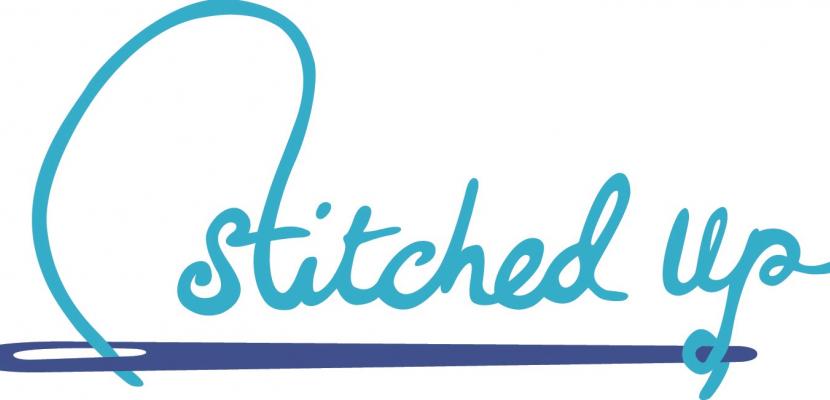Image

Stitched Up
Published on 30 June 2020

United Kingdom
Greater Manchester
This is the good practice's implementation level. It can be national, regional or local.
About this good practice
Stitched Up is a co-operative located in Chorlton, South Manchester, equipped with domestic and industrial sewing machines and delivers a range of services to extend the product life of textiles.
Community engagement and wellbeing is at the core of the organisation and this enables it to currently receive approximately 1 tonne of donated textile material per year. Textiles are sorted by Stitched Up, and used to run clothing repair and sewing classes for the community and also to be sold online to generate income.
Sewing classes and skill sharing workshops are delivered for a fee in a number of formats as one off classes or multi week foundation skills programmes for garment repairing and making with a focus on education around the real cost of clothing and the social cost of fast fashion. Free classes are also available along with a monthly Repair Café which any member of the community can attend at no cost.
Classes and free events sharing repair skills are taught as well as running a monthly Repair Cafe event which any member of the community can access for free.
A monthly Clothes Swap event is held each month, attended by around 100 people helping to divert around 1,000 items of clothing from landfill each month.
Stitched Up extends its work by engaging with charities providing skills and facilitating social cohesion through its work with adults with experience of homelessness, refugees and asylum seekers, charities working with sex workers, and young people.
Community engagement and wellbeing is at the core of the organisation and this enables it to currently receive approximately 1 tonne of donated textile material per year. Textiles are sorted by Stitched Up, and used to run clothing repair and sewing classes for the community and also to be sold online to generate income.
Sewing classes and skill sharing workshops are delivered for a fee in a number of formats as one off classes or multi week foundation skills programmes for garment repairing and making with a focus on education around the real cost of clothing and the social cost of fast fashion. Free classes are also available along with a monthly Repair Café which any member of the community can attend at no cost.
Classes and free events sharing repair skills are taught as well as running a monthly Repair Cafe event which any member of the community can access for free.
A monthly Clothes Swap event is held each month, attended by around 100 people helping to divert around 1,000 items of clothing from landfill each month.
Stitched Up extends its work by engaging with charities providing skills and facilitating social cohesion through its work with adults with experience of homelessness, refugees and asylum seekers, charities working with sex workers, and young people.
Resources needed
Textile material donations. Around 1 tonne of textiles is donated each year from the community. What began as a volunteer-led project in 2011 now in 2020 has three paid staff and two paid freelancers, alongside the support of approximately 57 volunteers per year.
Evidence of success
In 2019, Stitched Up taught new skills relating to Resource Efficiency to 206 people at its workshop in Manchester, and delivered 68 workshops to groups across the Manchester area. In 2019 alone, 1 tonne of Landfill was avoided, 3 FTE jobs have been created, with input from a number of freelancers, and 57 volunteers were engaged in 2019. Social Inclusion is also at the heart of the activity delivered with support to a wide range of disadvantaged groups.
Potential for learning or transfer
The case of Stitched Up is an example of how local resource efficiency can be achieved, reducing landfill, through community engagement with the Circular Economy whilst providing skills to under represented and often vulnerable groups in society.
The key transversal factors for success appear to be the Leadership and vision of the organisation’s founder, alongside community buy in and recognition of the value of CE activities. Whilst the local area that the organisation serves is relatively affluent by Manchester standards, this has enabled services to be delivered across Greater Manchester to more deprived communities.
The basic raw material required is used textiles, in this case mostly from the community, however transferability would be also enhanced with greater ability to access municipal recycling and collection centres and greater Municipality support. A propensity for local volunteering is also a key feature to be considered within the model that is presented.
The key transversal factors for success appear to be the Leadership and vision of the organisation’s founder, alongside community buy in and recognition of the value of CE activities. Whilst the local area that the organisation serves is relatively affluent by Manchester standards, this has enabled services to be delivered across Greater Manchester to more deprived communities.
The basic raw material required is used textiles, in this case mostly from the community, however transferability would be also enhanced with greater ability to access municipal recycling and collection centres and greater Municipality support. A propensity for local volunteering is also a key feature to be considered within the model that is presented.
Further information
Website
Good practice owner
You can contact the good practice owner below for more detailed information.
Organisation
Stitched Up Cooperative

United Kingdom
Greater Manchester
Contact
Enterprise Fellow